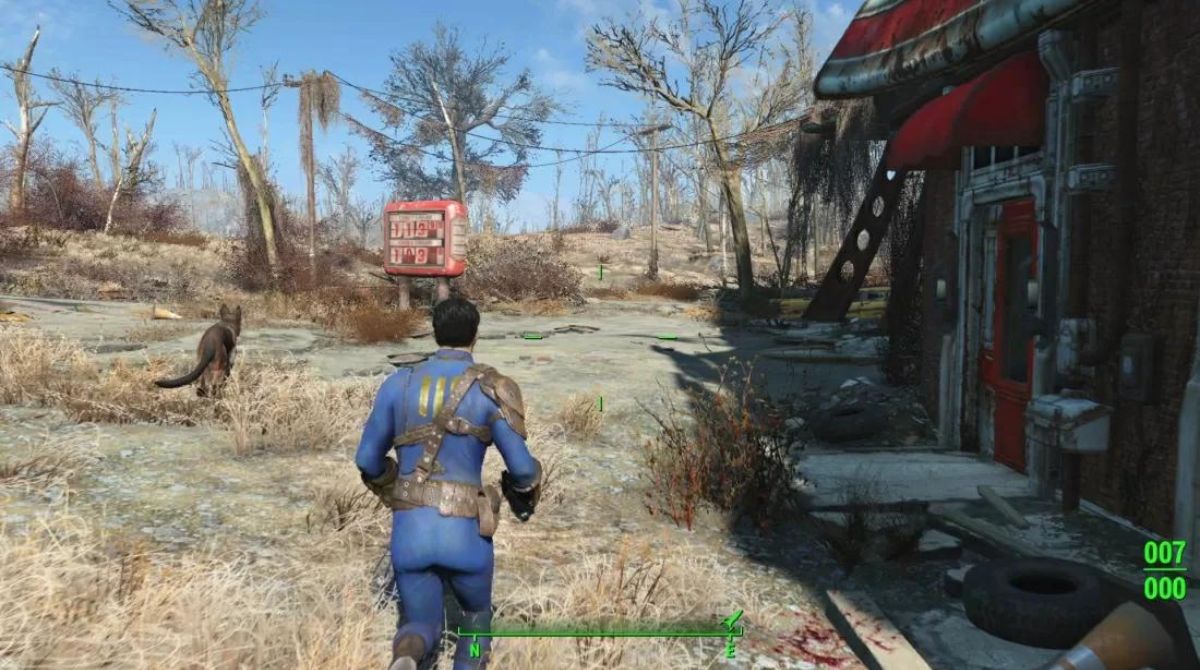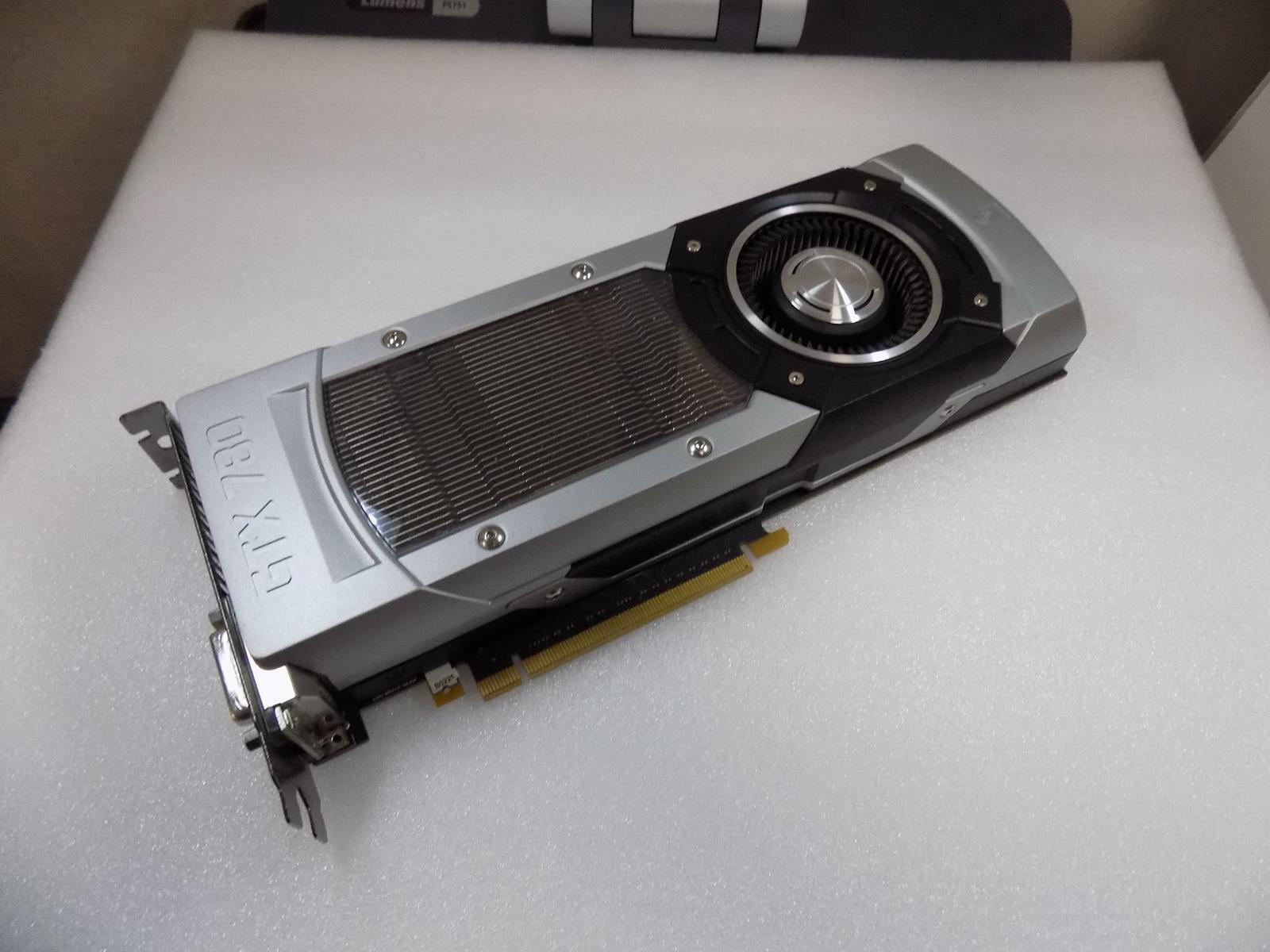Introduction
Fallout 4 is a popular open-world role-playing game developed by Bethesda Game Studios. As players explore the post-apocalyptic wasteland of Boston, they encounter various challenges, engaging in combat, and embarking on quests. Like any modern video game, Fallout 4 requires hardware resources to deliver a seamless and immersive gaming experience.
One crucial component that affects the game’s performance is Random Access Memory (RAM). RAM is the temporary storage space where the game processes and stores data while it is being used. It plays a vital role in determining how well a game runs, particularly concerning smoothness, loading times, and overall stability.
In this article, we will delve into the topic of RAM usage in Fallout 4. We will explore the minimum and recommended system requirements for the game, discuss theoretical limitations of RAM usage, and examine how RAM usage differs across different platforms. Additionally, we will consider the factors that influence RAM usage, including the impact of modding on Fallout 4’s performance. Finally, we will provide some tips on optimizing RAM usage to ensure a more enjoyable gaming experience in Fallout 4.
Whether you are a dedicated Fallout fan or a newcomer to the series, understanding the role of RAM in the game’s performance is crucial. By optimizing your system’s RAM usage, you can enhance gameplay, reduce lag, and minimize crashes, allowing you to fully immerse yourself in the captivating wasteland of Fallout 4.
Understanding RAM
Random Access Memory (RAM) is a type of computer memory that stores data that is being actively used by the CPU. It provides a high-speed storage area for instructions and data that are frequently accessed, allowing for faster processing and smoother multitasking. RAM is a crucial component in any computer system, including gaming consoles and PCs, as it directly affects the overall performance and responsiveness of the system.
RAM acts as a temporary storage space between the computer’s hard drive, where data is permanently stored, and the CPU, which processes instructions and manipulates data. When a program is launched, such as Fallout 4, a portion of the game’s data and code is loaded into the RAM to facilitate quick access by the CPU. This allows for faster retrieval and execution of game assets, resulting in a smoother gaming experience.
One important aspect of RAM is its read and write speed, which refers to how quickly data can be retrieved and written back into memory. Faster RAM modules generally result in snappier performance, as the CPU can quickly access and process data. Additionally, the size of the RAM module also affects system performance. Having more RAM allows for a larger amount of data to be stored temporarily, reducing the need for frequent retrieval from the slower hard drive.
It’s important to note that RAM is a volatile form of memory, meaning that its contents are lost when the computer is powered off. This is why saving your progress in games like Fallout 4 is essential, as the data stored in RAM will be lost if you shut down the game or turn off your system.
In the context of gaming, including Fallout 4, RAM plays a vital role in storing game assets, textures, character models, and other game data. The amount of RAM available in your system directly influences the level of detail and complexity that can be loaded and displayed in-game. Insufficient RAM can lead to issues such as frequent loading screens, texture pop-ins, and reduced overall performance.
By understanding the importance of RAM and how it functions, players can make informed decisions about their system’s RAM capacity and performance optimization. A well-optimized RAM setup can significantly enhance the gaming experience, ensuring smooth gameplay, reduced lag, and improved overall stability.
Minimum and Recommended System Requirements for Fallout 4
Before diving into the intricacies of RAM usage in Fallout 4, it is essential to understand the minimum and recommended system requirements for the game. These specifications act as guidelines for players to ensure their system can handle the game’s demands and deliver a satisfactory gaming experience.
The minimum system requirements for Fallout 4 are as follows:
- Operating System: Windows 7/8/10 (64-bit)
- Processor: Intel Core i5-2300/AMD Phenom II X4 945 or equivalent
- RAM: 8GB
- Graphics Card: NVIDIA GTX 550 Ti 2GB/AMD Radeon HD 7870 2GB or equivalent
- Storage: 30GB of available hard disk space
These specifications represent the minimum hardware needed to run Fallout 4. While the game can technically run with these requirements, players may experience performance issues, especially in more demanding areas with heavy textures and effects.
To ensure a smoother and more enjoyable experience, Bethesda Game Studios recommends the following system requirements:
- Operating System: Windows 7/8/10 (64-bit)
- Processor: Intel Core i7-4790/AMD FX-9590 or equivalent
- RAM: 8GB
- Graphics Card: NVIDIA GTX 780 3GB/AMD Radeon R9 290X 4GB or equivalent
- Storage: 30GB of available hard disk space
With these recommended specifications, players can expect a smoother and more visually impressive experience in Fallout 4. The higher-end processors and graphics cards provide better performance capabilities, allowing for higher graphics settings and smoother gameplay.
It’s worth noting that these requirements may vary slightly depending on factors such as specific hardware configurations, resolution settings, and additional mods or DLCs installed. To ensure the best possible experience, it is always recommended to meet or exceed the recommended system requirements.
Having a system on par with or exceeding the recommended specifications not only enhances the overall gameplay experience but also influences the efficient utilization of RAM. Adequate RAM, combined with the recommended hardware, ensures smooth asset loading, reduced loading times, and minimal performance hiccups, creating an immersive and enjoyable gaming experience in Fallout 4.
Theoretical Limitations of RAM Usage in Fallout 4
While there are minimum and recommended system requirements for Fallout 4, it is essential to understand that there are theoretical limitations to how much RAM the game can utilize. These limitations are primarily influenced by the game’s software design and the underlying technology used in its development.
As of its release, Fallout 4 is a 32-bit application, which means it is designed to work with a maximum of 4GB RAM. This limitation arises from the use of the 32-bit memory addressing system, which can only access a maximum of 4GB of memory. However, this 4GB limit includes not only the RAM but also other system resources, such as video memory and other peripherals.
While this may seem restrictive, there are additional factors to consider. Fallout 4 utilizes a technique known as virtual memory, which allows the game to use more memory than the physical RAM available. Virtual memory uses a portion of the hard drive to simulate additional RAM, providing more space for assets and data storage.
However, relying heavily on virtual memory has its limitations as well. Accessing virtual memory is slower compared to accessing physical RAM, resulting in potential performance degradation. When the game needs to access data in virtual memory, it needs to fetch it from the hard drive, which is significantly slower than retrieving it directly from RAM. This can lead to increased loading times and potential stuttering or lag during gameplay.
It’s important to note that although Fallout 4 can utilize virtual memory to overcome the 4GB RAM limitation, it still benefits from having more physical RAM available. Having additional RAM allows for faster access to data, reducing reliance on virtual memory and potentially improving overall performance.
Despite the limitations imposed by the 32-bit application design, there are ways to optimize RAM usage in Fallout 4. Bethesda Game Studios has implemented various optimization techniques in the game’s code, such as efficient asset loading and memory management algorithms. These techniques help reduce the overall RAM footprint of the game, ensuring smoother performance on systems with limited RAM resources.
Additionally, using modding tools and community-created mods can further optimize RAM usage in Fallout 4. Many mods focus on improving game performance by optimizing asset loading, reducing memory leaks, and optimizing texture and model sizes. By carefully selecting and installing performance-focused mods, players can potentially alleviate some of the RAM consumption and improve the overall stability and performance of the game.
Understanding the theoretical limitations of RAM usage in Fallout 4 allows players to make informed decisions about hardware upgrades and performance optimization. While the 32-bit application design places some constraints on RAM utilization, there are still opportunities to enhance gameplay and minimize performance issues through strategic hardware choices and thoughtful use of mods.
RAM Usage in Fallout 4 on Different Platforms
Fallout 4 is available on multiple gaming platforms, including PC, PlayStation 4 (PS4), and Xbox One. The game’s RAM usage can vary depending on the platform, as each platform has its own unique hardware specifications and limitations.
On PC, the RAM usage in Fallout 4 can be more flexible compared to consoles. PC gamers have the advantage of being able to upgrade their system’s RAM capacity to meet the game’s requirements. The game’s RAM usage on PC can range from 4GB to 8GB or more, depending on factors such as installed mods, graphics settings, and the complexity of the game’s environment.
On consoles like the PS4 and Xbox One, the RAM is shared between the operating system and the game. This means that the available RAM for Fallout 4 is limited and cannot be expanded or upgraded by the user. The PS4 and Xbox One typically have 8GB of RAM, with a portion reserved for system operations and background tasks. This leaves a smaller portion available for games like Fallout 4.
The RAM usage of Fallout 4 on consoles is optimized to work within the limitations of the platform. The game’s assets, textures, and other data are carefully managed to ensure smooth gameplay and stable performance. However, due to the limited amount of available RAM, console players may occasionally encounter minor performance issues, such as occasional texture pop-ins or longer loading times compared to their PC counterparts.
It’s worth noting that the Xbox One X and PlayStation 4 Pro, which are enhanced versions of the original consoles, offer slight improvements in performance due to upgraded hardware and additional RAM. These enhancements can potentially result in improved texture quality, faster loading times, and reduced frame rate drops in Fallout 4.
Regardless of the platform, it is crucial for players to meet the minimum system requirements and, if possible, exceed them. With additional RAM, whether it’s on PC or a more powerful console variant, players can experience smoother gameplay, reduced hitching, and improved overall performance in Fallout 4.
Ultimately, the RAM usage in Fallout 4 varies depending on the platform, but Bethesda Game Studios has optimized the game to provide an enjoyable experience within the constraints of each platform’s hardware. Whether playing on PC or console, ensuring your system meets or exceeds the recommended requirements will allow you to fully immerse yourself in the post-apocalyptic world of Fallout 4.
Factors That Influence RAM Usage in Fallout 4
The RAM usage in Fallout 4 can be influenced by various factors that impact the game’s performance and overall resource utilization. Understanding these factors can help players optimize their system configurations and enhance their gaming experience.
One significant factor that influences RAM usage is the game’s graphics settings. Higher graphics settings, such as increased resolution, texture quality, and advanced visual effects, can require more RAM to store and process the additional data. It’s important to find the right balance between visual fidelity and performance to ensure optimal RAM usage.
Another factor is the complexity and size of the game world. Fallout 4 features a vast open world with numerous locations, characters, and interactive objects. The game’s RAM usage can increase in areas with dense vegetation, detailed structures, or large numbers of non-player characters (NPCs) and enemies. Exploring these areas may require more RAM to store and load the necessary assets, resulting in potential fluctuations in RAM usage during gameplay.
Additionally, the usage of mods and user-created content can significantly impact RAM usage in Fallout 4. Mods can introduce new assets, textures, and scripts into the game, increasing the overall RAM requirements. It’s important to monitor the RAM usage when using mods and ensure that your system has enough resources to accommodate both the base game and the additional content.
Furthermore, running multiple background processes or applications on your system can impact Fallout 4’s RAM usage. Having resource-intensive applications running simultaneously, such as video editing software or web browsers with many tabs open, can reduce the amount of available RAM for the game. Closing unnecessary applications before playing Fallout 4 can help ensure that more RAM is allocated to the game, resulting in improved performance.
The performance of your hard drive can also influence RAM usage in Fallout 4. A slow or fragmented hard drive can lead to longer loading times and increased reliance on virtual memory, using more RAM to compensate for the slower data retrieval. Consider using a solid-state drive (SSD) or optimizing your hard drive for better performance to minimize RAM usage in these scenarios.
Lastly, the efficiency of the game’s code and optimization techniques implemented by Bethesda Game Studios can influence RAM usage. Well-optimized code and efficient memory management algorithms can reduce RAM footprint, ensuring better utilization of available resources and minimizing potential performance issues related to RAM usage.
By considering these factors, players can make informed decisions about their hardware configurations, graphics settings, and mod usage to optimize RAM usage in Fallout 4. Adjusting these variables according to the capabilities of your system can result in smoother gameplay, reduced loading times, and an overall enhanced gaming experience.
Modding Fallout 4 and its Impact on RAM Usage
Fallout 4 has a vibrant modding community that creates and shares additional content for the game. Mods can range from graphical enhancements and quality-of-life improvements to new quests, characters, and gameplay features. While mods can greatly enhance the gaming experience, they can also have an impact on RAM usage in Fallout 4.
When players install mods, additional assets such as textures, models, scripts, and sound files are introduced into the game. These assets increase the overall RAM requirements of Fallout 4. The more mods installed, the more RAM is needed to store and process the additional data. It’s important to be mindful of the total number and size of mods being used to avoid overwhelming system resources.
Some mods, particularly those that add high-resolution textures or complex graphical effects, can considerably increase RAM usage. These mods require more memory to load and display the enhanced graphics. Players with limited RAM might experience performance issues, such as longer loading times or occasional stuttering, if their system is unable to handle the increased RAM requirements of these mods.
Modding can also lead to conflicts between different mods or with the base game itself. These conflicts can cause memory leaks or inefficiencies in RAM usage, leading to instability or crashes. To mitigate such issues, it’s recommended to carefully read mod descriptions, follow installation instructions, and regularly update mods to their latest versions. This helps ensure compatibility and minimize potential RAM-related problems.
Optimizing mods is also crucial for managing RAM usage in Fallout 4. Some mods may come with customizable options that allow players to adjust their performance impact. Reducing the resolution or visual complexity of textures, controlling the number of NPCs or objects added by mods, or disabling unnecessary features can help reduce the overall RAM usage without detracting significantly from the modded experience.
Using mod management tools can also help optimize RAM usage. These tools assist in organizing and loading mods efficiently, preventing conflicting or redundant mods from consuming unnecessary resources. Additionally, using performance-enhancing mods that specifically address RAM usage and memory management can help optimize the overall stability and performance of Fallout 4.
It’s worth noting that modding Fallout 4 is a creative and flexible process, and the impact on RAM usage can vary depending on the specific mods used and their configuration. Monitoring RAM usage through system tools or modding utilities during gameplay can help identify potential issues and make informed decisions about mod selection and optimization.
Despite the potential impact on RAM usage, modding Fallout 4 can greatly enhance the gaming experience and provide players with a wealth of content and features to explore. By being mindful of the overall RAM requirements, carefully selecting and managing mods, and optimizing their performance, players can enjoy a modded Fallout 4 experience while maintaining stability and ensuring smooth gameplay.
Optimizing RAM Usage for Fallout 4
Optimizing RAM usage in Fallout 4 can greatly enhance the game’s performance and overall stability. By taking a few steps to manage system resources efficiently, players can reduce RAM-related issues and enjoy a smoother gaming experience.
One essential step in optimizing RAM usage is to ensure that your system meets or exceeds the game’s minimum and recommended system requirements. Having sufficient RAM capacity is crucial for storing and processing the game’s assets and data. Upgrading your RAM to the recommended amount or higher can help alleviate potential performance issues related to resource constraints.
Closing unnecessary background applications and processes before launching Fallout 4 is also important. These applications consume valuable system resources, including RAM, which could otherwise be allocated to the game. Closing resource-intensive programs like web browsers, video editing software, or background system updates helps free up more RAM for Fallout 4.
Adjusting your in-game graphics settings is another effective way to optimize RAM usage. While higher graphical settings can provide a more visually immersive experience, they also require additional RAM to store and process the enhanced graphics. Lowering settings such as texture quality, shadow quality, or depth of field can reduce the RAM requirements, resulting in smoother gameplay and faster loading times.
Regularly monitoring and managing mods can also help optimize RAM usage. Unused or conflicting mods can consume unnecessary resources, leading to increased RAM usage and potential stability issues. It’s essential to regularly review installed mods, remove unnecessary ones, and keep them updated to ensure compatibility and optimize RAM usage.
Using mod management tools can be highly beneficial for organizing and optimizing mods. These tools help prevent conflicts between mods, enable easy activation and deactivation of mods, and assist in identifying and resolving potential RAM-related issues. Managing the load order of mods with these tools can also help reduce RAM usage by ensuring that mods are loaded in a manner that minimizes conflicts and maximizes efficiency.
Optimizing the game’s disk usage can indirectly impact RAM usage as well. Fragmented game files can lead to slower read times, increasing the reliance on virtual memory and potentially consuming more RAM. Regularly defragmenting your game files or installing the game on an SSD can help reduce the need for virtual memory and improve overall performance.
Lastly, keeping Fallout 4 up to date with the latest patches and updates is crucial for optimizing RAM usage. Game developers release updates that often include performance optimizations, bug fixes, and memory management enhancements. Staying up to date ensures that you’re benefiting from these improvements, reducing the chances of RAM-related issues and improving overall gameplay stability.
By implementing these optimization techniques, players can significantly improve RAM usage in Fallout 4. The game will run smoother, experience reduced loading times, and provide a more enjoyable gaming experience overall. Optimizing RAM usage in Fallout 4 is a worthwhile investment of time and effort that allows players to fully immerse themselves in the captivating world of the post-apocalyptic wasteland.
Conclusion
Understanding and optimizing RAM usage in Fallout 4 is crucial for a smooth and enjoyable gaming experience. RAM plays a significant role in storing and processing game assets, ensuring quick access and smooth gameplay. By considering various factors such as system requirements, graphical settings, mod usage, and efficient resource management, players can optimize their RAM usage and enhance the performance of Fallout 4.
It’s important to ensure that your system meets or exceeds the minimum and recommended system requirements for Fallout 4. Upgrading your RAM capacity can provide more resources for the game, reducing potential performance issues related to limited memory.
Adjusting your in-game graphics settings according to your system’s capabilities is essential for efficient RAM utilization. Finding the right balance between visual fidelity and performance allows for smoother gameplay and faster loading times.
When using mods, it’s important to carefully manage and optimize them to minimize RAM usage. Keeping track of installed mods, removing unnecessary ones, and utilizing mod management tools can help prevent conflicts and reduce the strain on system resources.
Optimizing general system resources, such as closing background applications and managing disk usage, can indirectly impact RAM utilization in Fallout 4. Freeing up RAM for the game by shutting down resource-intensive processes and defragmenting game files can improve overall performance.
By implementing these optimization techniques, players can ensure a more stable and enjoyable gaming experience in Fallout 4. Whether you’re exploring the wastelands on PC, PlayStation 4, or Xbox One, optimizing RAM usage can lead to smoother gameplay, reduced loading times, and an immersive adventure into the post-apocalyptic world.
























